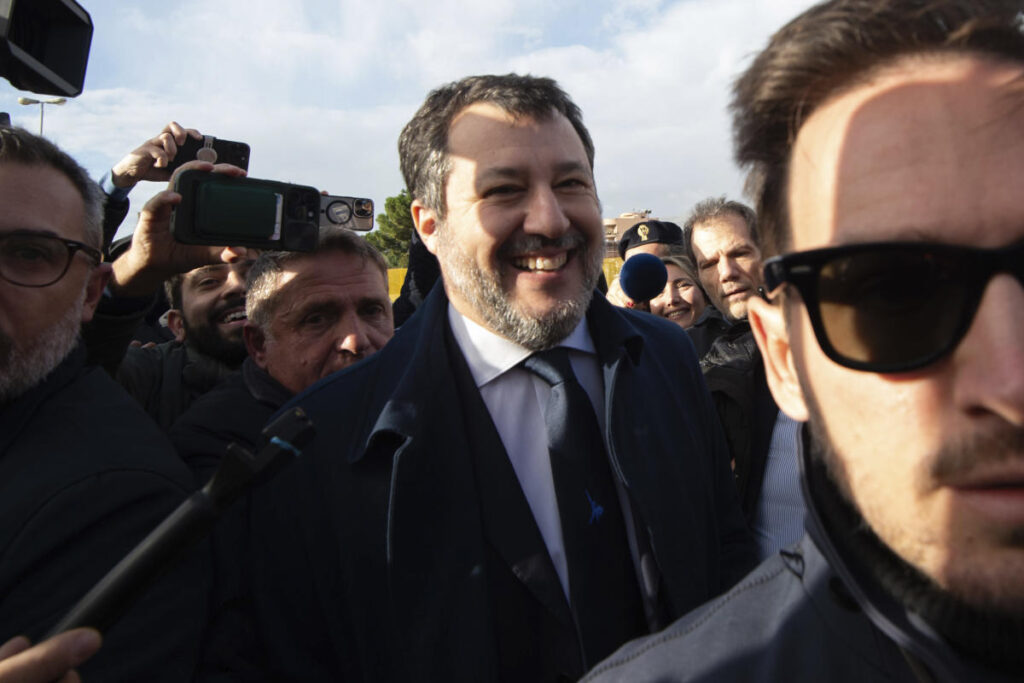On Friday, a court in Sicily is set to deliver a verdict regarding the case of Matteo Salvini, Italy’s vice premier, concerning allegations of illegal detention of migrants aboard the Open Arms rescue ship during his tenure as interior minister in 2019. Salvini, who is facing charges that include kidnapping, could face a maximum sentence of six years if found guilty, which would also lead to an automatic disqualification from holding public office for over five years. However, the judicial process in Italy allows for lengthy appeals, meaning the verdict may not result in immediate consequences, and Salvini has made it clear he intends to remain in his position regardless of the outcome.
The incident in question revolves around Salvini’s actions when he denied the disembarkation of approximately 100 migrants stranded on the rescue ship off the coast of Lampedusa, Italy’s southernmost island. His governance coincided with a policy of stringent immigration control, where he prioritized border security and regulatory measures against humanitarian rescue operations. The situation onboard was dire, with some migrants resorting to jumping overboard in a desperate attempt to reach safety. Ultimately, a court intervened, allowing the migrants to leave the ship, highlighting the tension between government policy and humanitarian action during a migration crisis.
Salvini, now serving as transport minister in the far-right government led by Premier Giorgia Meloni, continues to assert that his actions were necessary to protect Italy’s national borders. He has publicly maintained that his stance on immigration has been effective in reducing migrant arrivals and fatalities at sea, reiterating his commitment to “combat mass immigration” as he approaches the court’s ruling. His comments suggest a defiant attitude, emphasizing that he remains proud of his past decisions, framing them as a defense of the country against the complexities of a migration crisis.
Support for Salvini comes not only from within the Italian government but also from various European lawmakers and influential figures like Elon Musk, who have expressed solidarity with Salvini’s hardline immigration policies. This backing reflects a broader political climate among right-wing factions across Europe that share a similar stance on immigration and border control issues. Salvini’s supporters argue that humanitarian rescue organizations have inadvertently contributed to human trafficking by supporting migration routes, a claim he has consistently made during his political career.
Since taking office, Premier Giorgia Meloni has announced a series of measures aiming to tighten immigration regulations, including agreements with North African states to curb migrant departures and the establishment of vetting centers in Albania. These centers aim to process migrants without allowing them to enter Italy, although their operation has been delayed due to legal challenges. Meloni’s government reflects a continuation of the rigid immigration policies championed by Salvini during his tenure as interior minister, indicating a major shift in Italy’s approach to handling migration crises.
The case against Salvini represents not only a legal battle but also a significant moment in Italy’s ongoing immigration discourse. The outcome of the court’s ruling may have implications for his political career and the future of similar immigration policies within Italy and potentially across Europe. The verdict might amplify tensions between human rights advocates and government officials who prioritize national security, demonstrating the complex intersection of law, politics, and humanitarian concerns in one of Europe’s most contentious issues.

